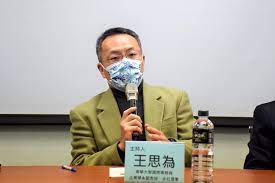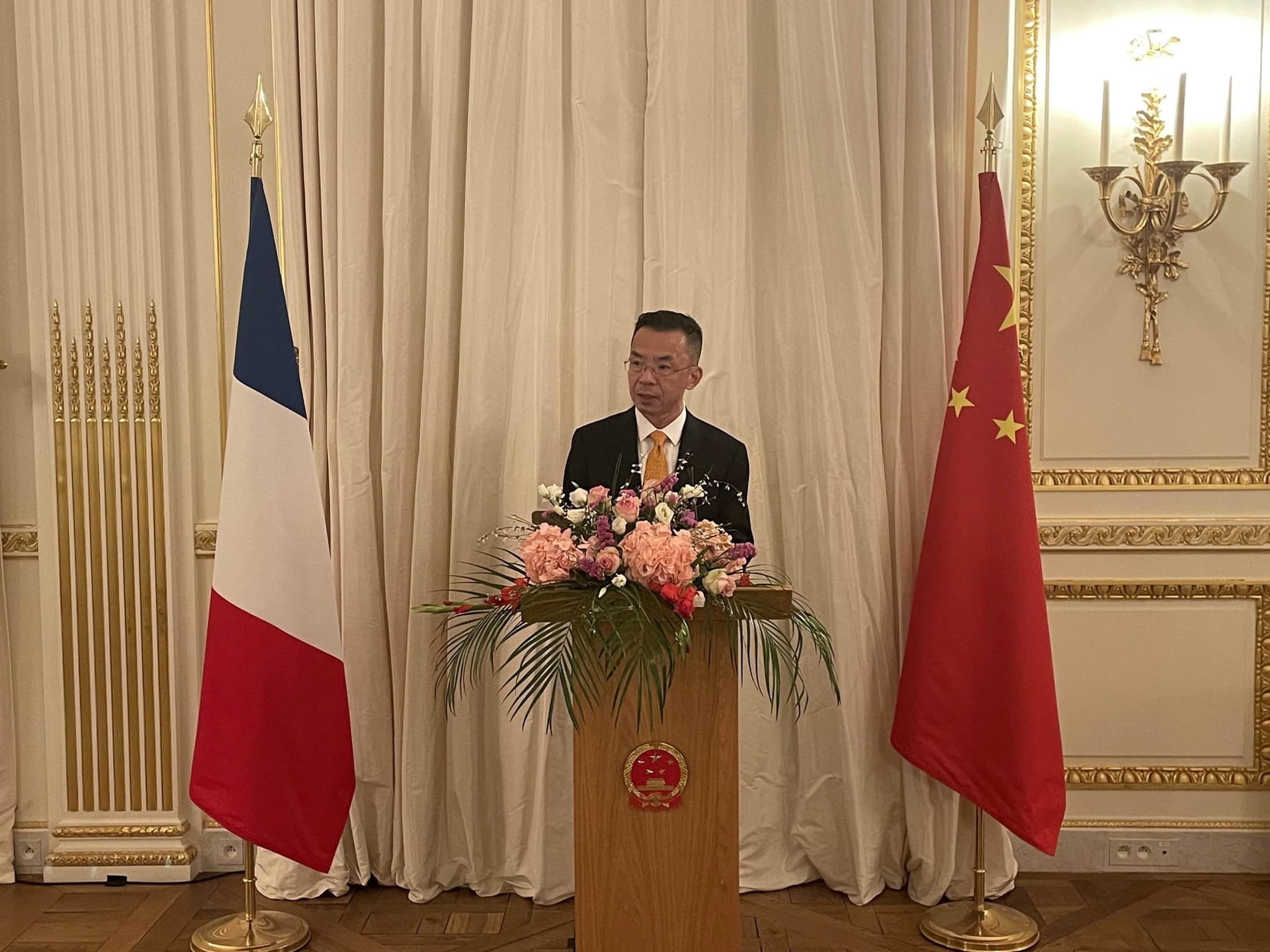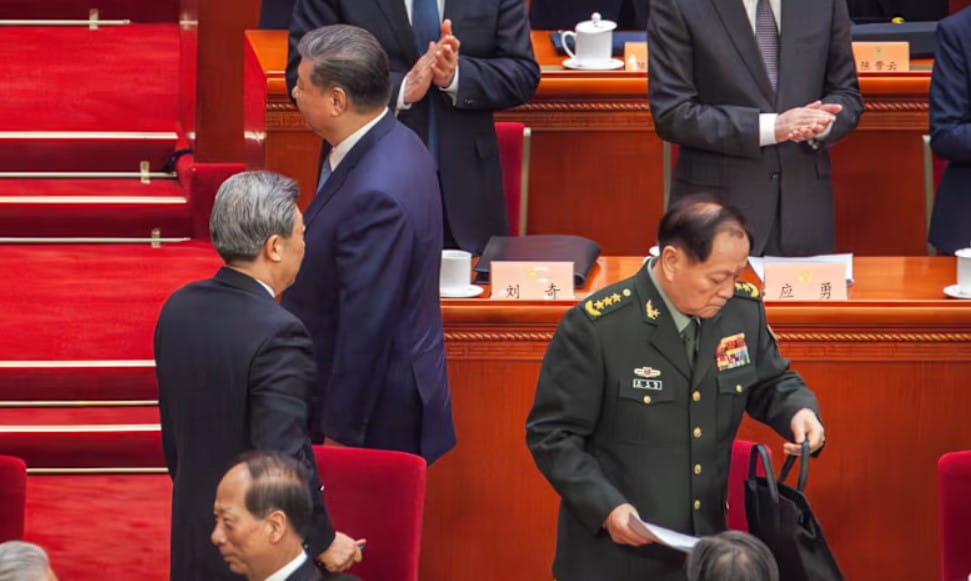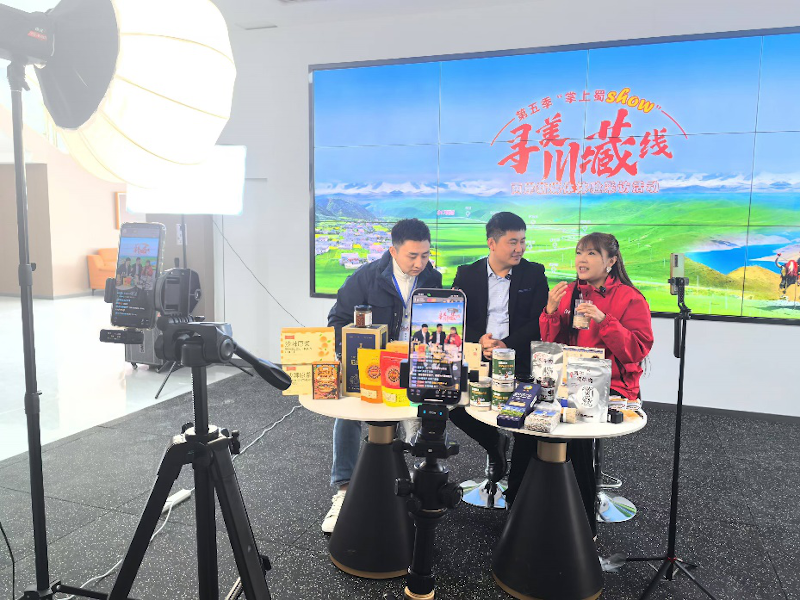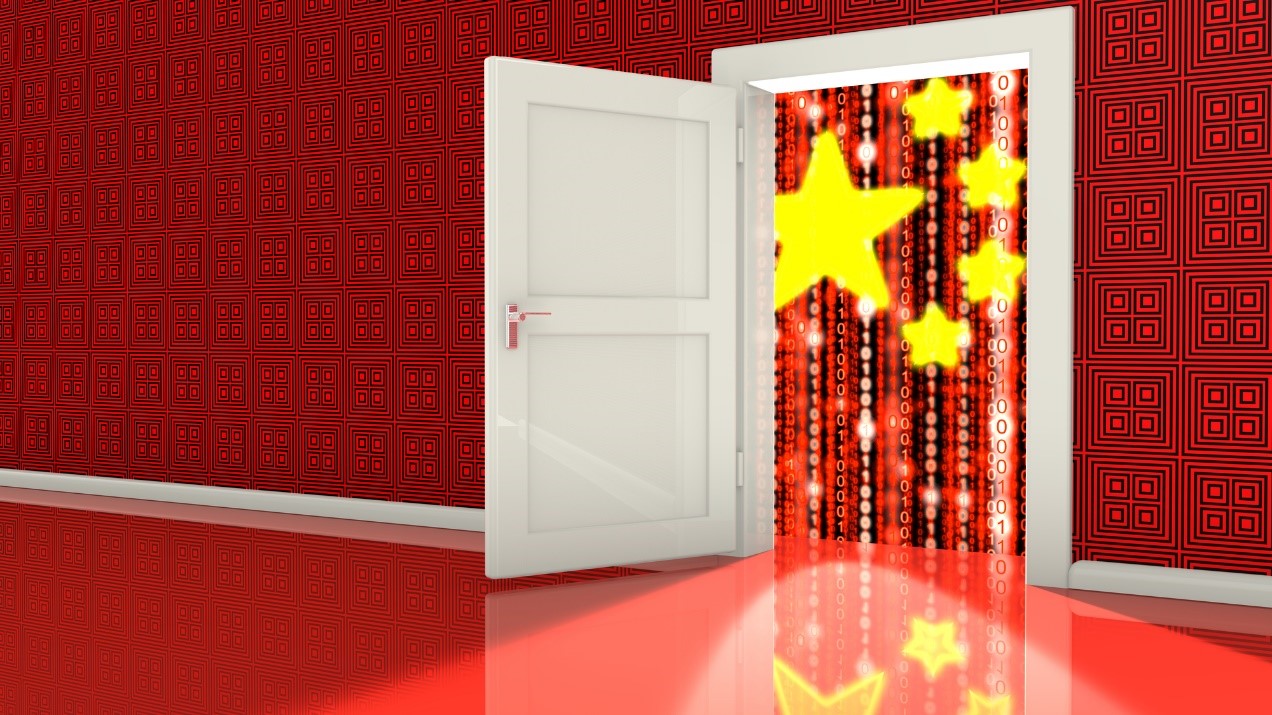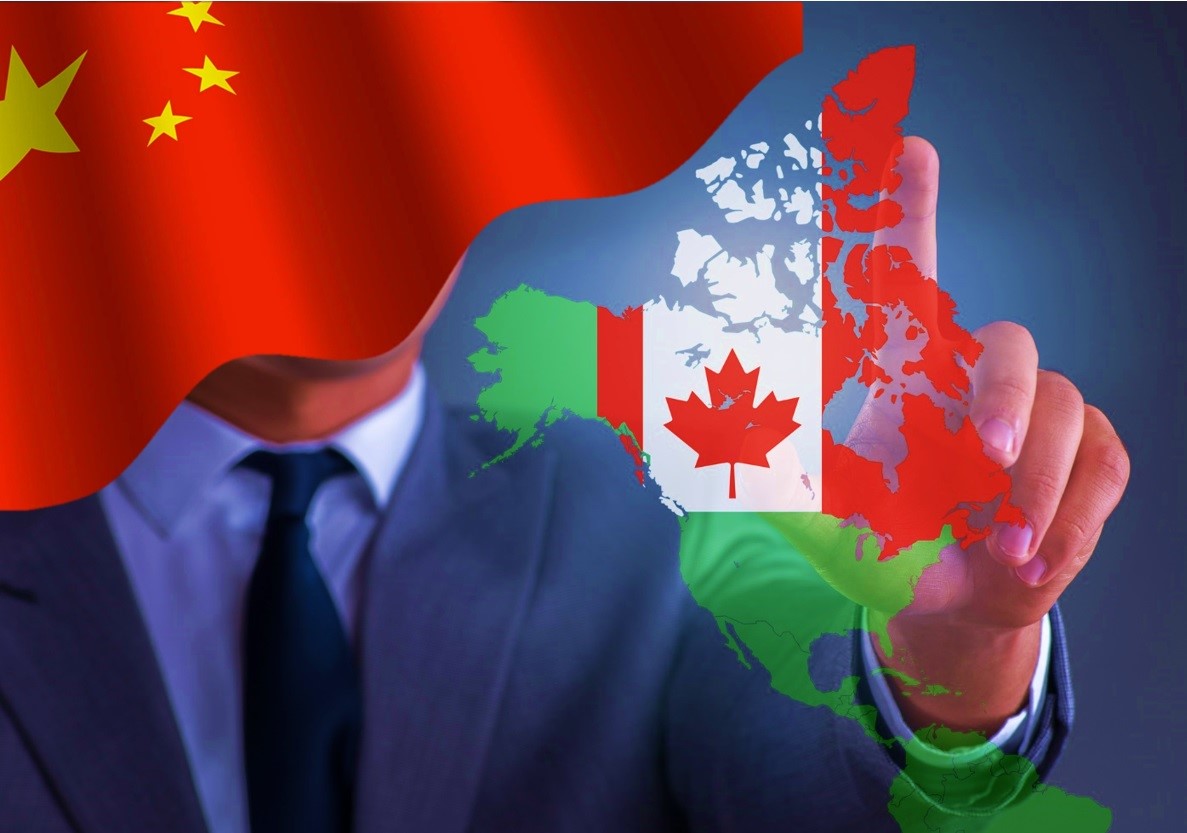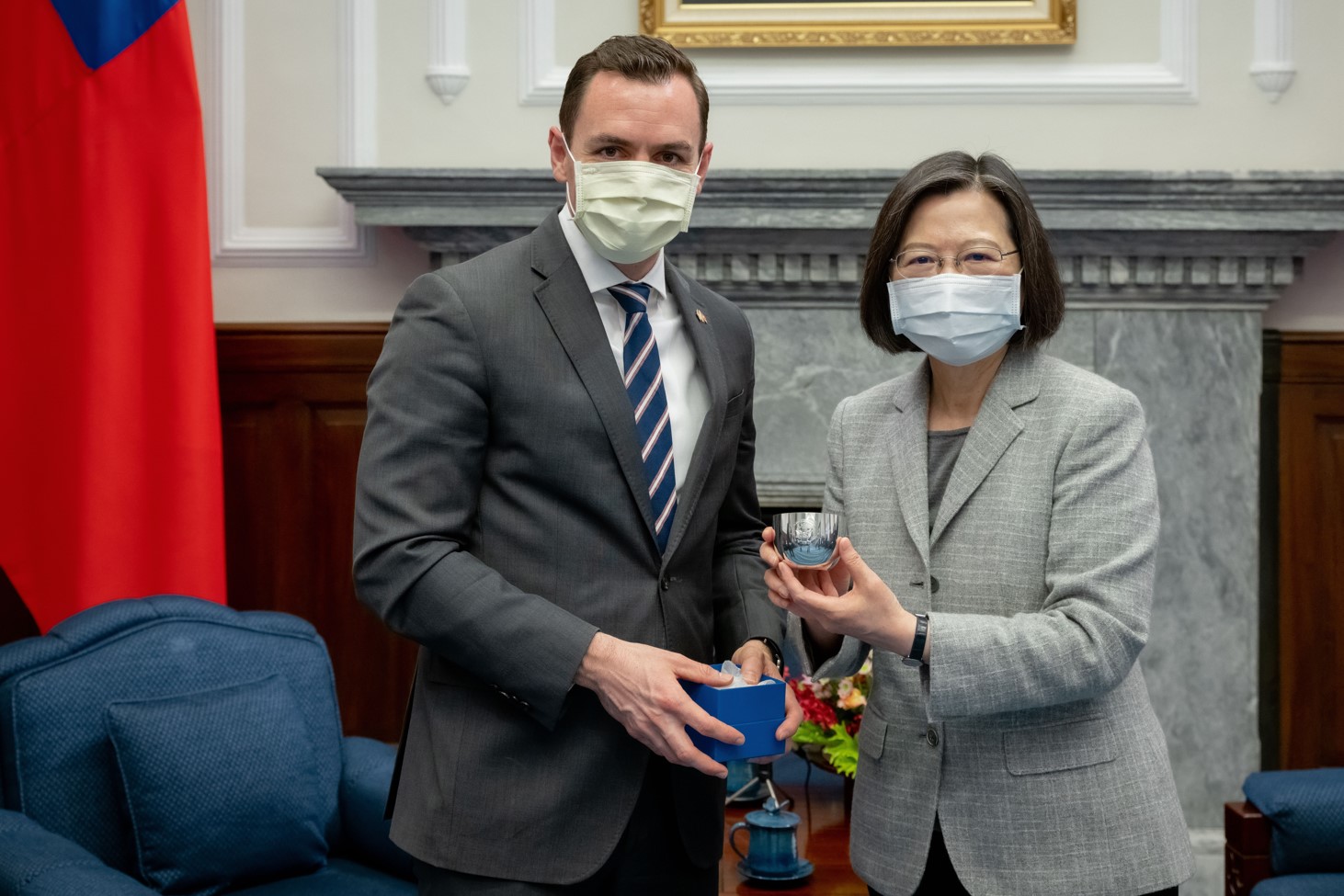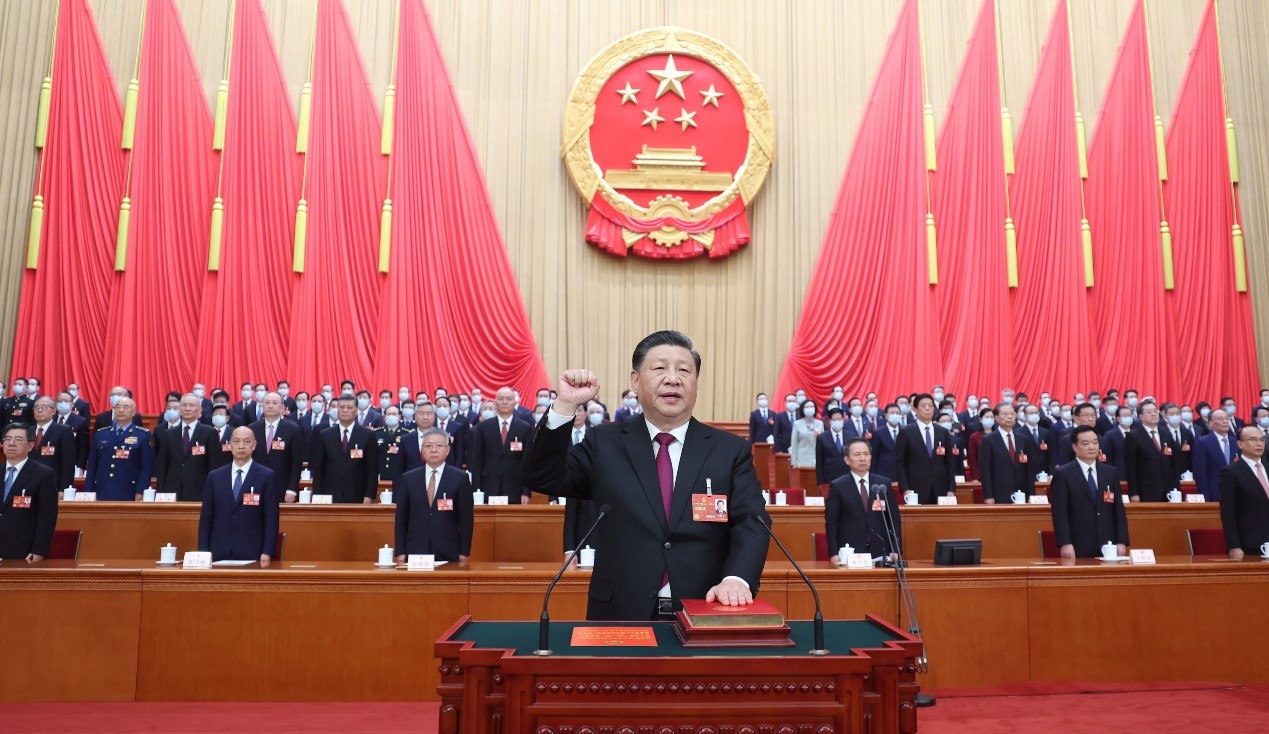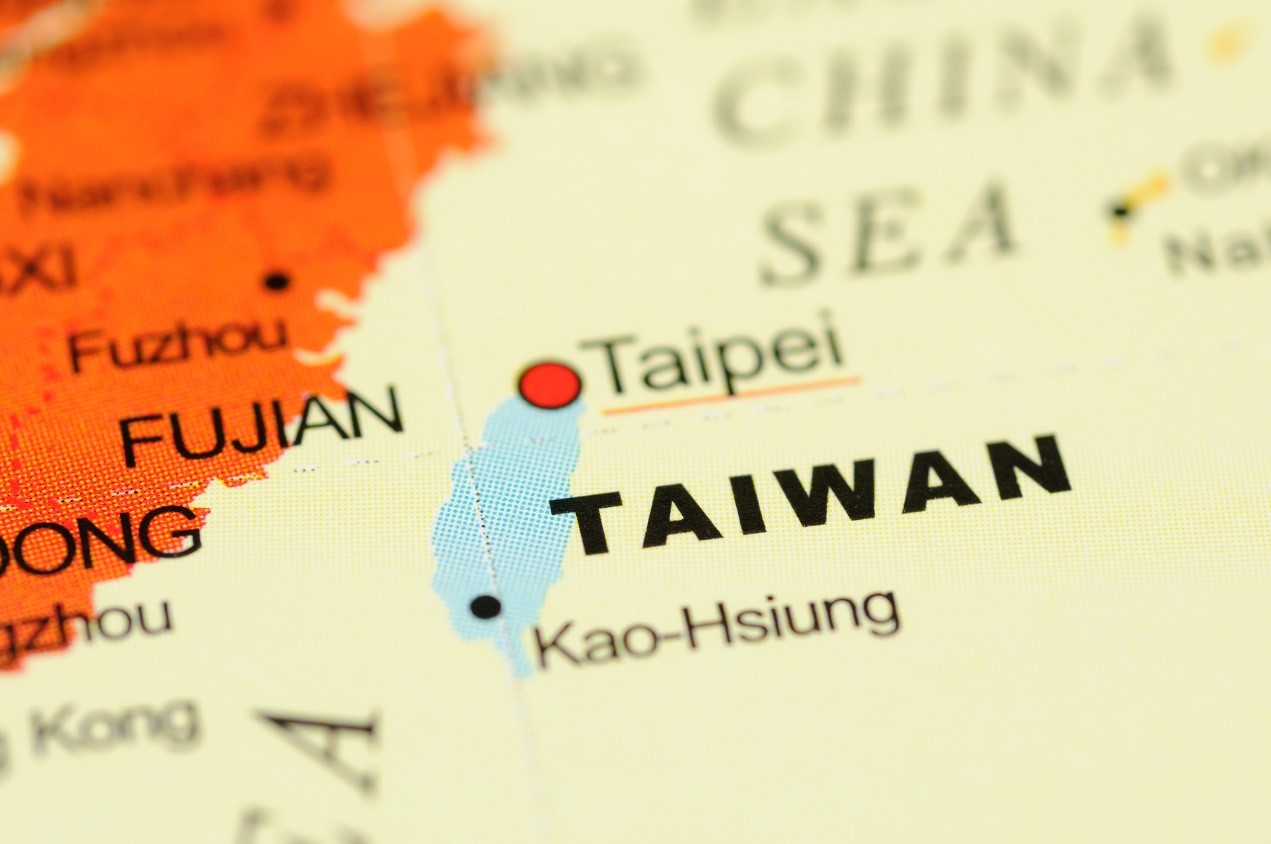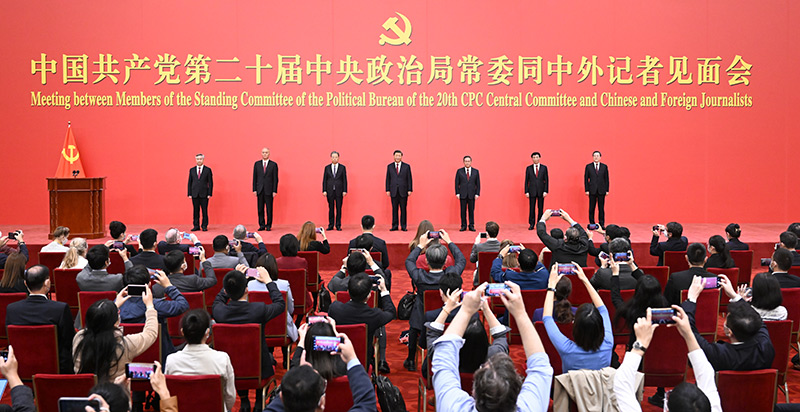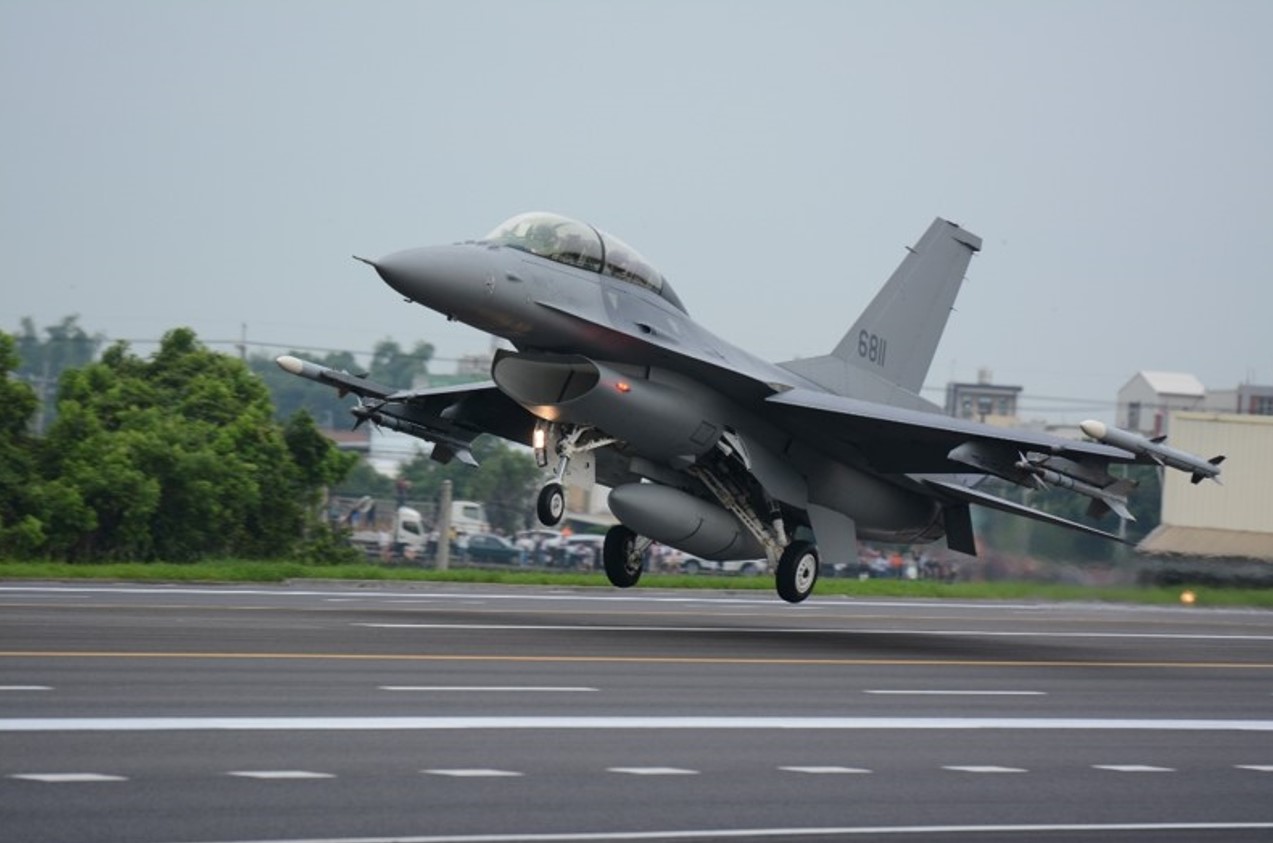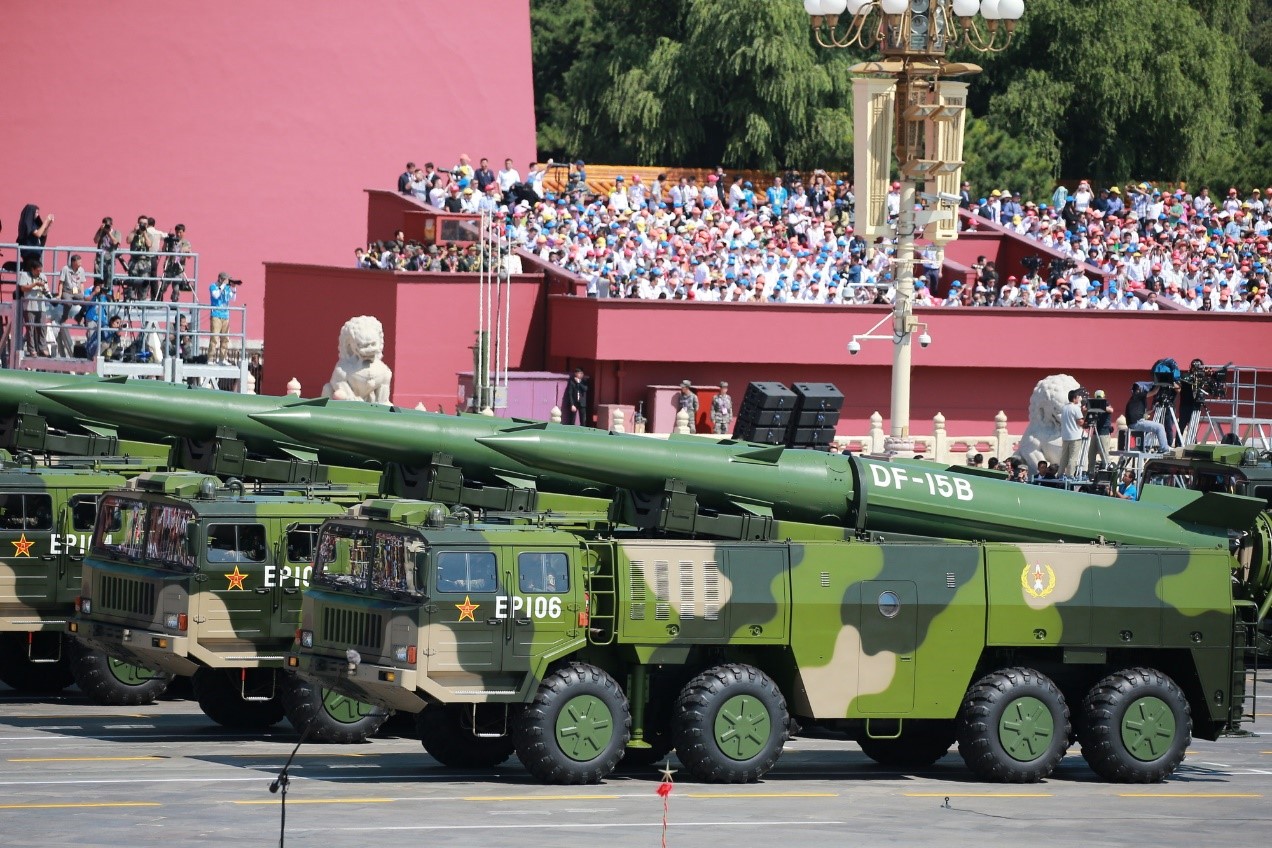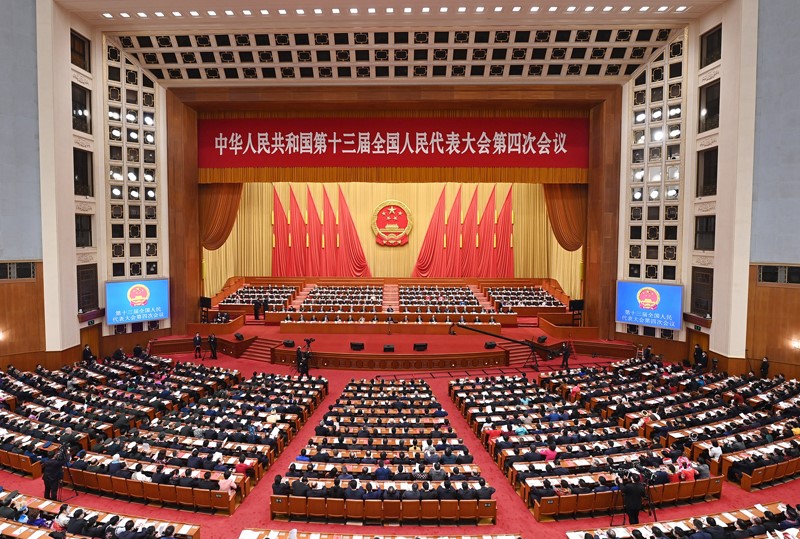These wolf warriors are not sincere interlocutors nor trustworthy diplomatic channels: they are just agents of the CCP who use an offensive way to boost CCP propaganda. The only mission of these wolf warriors is to please the leadership in China, not to promote nor to be a reliable bridge for bilateral relations.
Picture source: Ambassade de Chine en France, January 19, 2023, Facebook, https://www.facebook.com/photo.php?fbid=520515990175507&set=pb.100066513305985.-2207520000.&type=3.
Lessons for Europe from Lu Shaye's Controversial Interview
Prospects & Perspectives No. 25
By Steve Szu-wei Wang
Lu Shaye’s denial of ex-USSR countries’ sovereignty
Asked about the war in Ukraine on French television channel LCI on April 21, the Chinese Ambassador to France, Lu Shaye, questioned the sovereign status of the countries from the former USSR, which was dissolved in 1991. Also during this interview, the Chinese diplomat failed to clearly acknowledge that Crimea, annexed in 2014 by Russia, belongs to Ukraine. The fury and protests from these ex-USSR countries were to be expected, and around 80 European lawmakers addressed an open letter in the French newspaper Le Monde urging the French Minister of Europe and Foreign Affairs Catherine Colonna to declare the Chinese ambassador to France persona non grata. On April 24, the Quai d’Orsay said that a scheduled meeting had been held between Luis Vassy, the director of Foreign minister’s office, and Lu Shaye, adding that during the meeting the French government had addressed its deep concern about Lu’s remarks. Nevertheless, it appeared that both sides did not want this to look like a summons.
Later, the Chinese embassy in Paris issued a statement assuring that Lu's remarks on Ukraine “were not a statement of policy, but an expression of personal views during a televised discussion.” However, the Chinese government didn't give any comment on whether Lu’s remarks were improper or not, and Lu Shaye didn’t subsequently revoke his words nor apologize for his speech. That is because this kind of narrative corresponds perfectly with Chinese propaganda to the effect that Taiwan is part of China’s so-called historical territory. Nobody believes there was any possibility that Lu was allowed to have his personal views on such an important issue.
CCP propaganda promoter rather than professional diplomat
Many watchers of the EU’s foreign affairs regard Lu’s conduct as an ideal model of China’s “wolf warrior” diplomacy. However, if we take a closer look at this man’s record, we can actually find that he is rather an active player in the campaign of Chinese propaganda — more so than simply an arrogant diplomat who ignores all diplomatic protocol. His provocative discourse as often led to embarrassments. Speaking on French television channel BFM TV on August 3, 2022, Lu stated that once China establishes control over Taiwan, a process of “re-education” of its population would follow. At the end of May 2022, Lu declared on another French news channel, CNews, that the Uyghurs who are oppressed by the Chinese regime are “not interned” but “in educational and vocational training centers.” In March 2021, the diplomat had doubled down by publishing a statement on the Chinese embassy website calling a French researcher an “ideological troll,” accusing him of pro-Taiwan positions. Lu also called him a “crazy hyena” who “dress[es] up in the clothes of researchers and media and furiously attack China.” And in an article published in April 2020 on the website of the Chinese embassy in Paris, at the beginning of the Covid-19 pandemic, the ambassador claimed “to correct distorted facts.” In it, Lu asserted that “nursing staff [at] old people's homes abandoned their posts overnight, collectively deserting, leaving their residents to die of hunger and disease.”
These examples demonstrate that the role of the Chinese embassy in European countries is not merely an extension of China’s Ministry of Foreign Affairs, but a fervent supporter and promoter of CCP propaganda campaigns. In fact, the title of “wolf warrior” diplomat is just a mask, a cognitive trap for the public; in its bones it serves to the one and only master, the CCP, and this helps explain why Chinese diplomats don’t always respect diplomatic protocol. In 2021, Lu rejected an immediate summons by the French Ministry of Foreign Affairs because of “a busy schedule.” His disregard for diplomatic protocol on foreign soil was ostensibly intentional, with Lu wanting to show the alleged superiority of China over other countries. Hence, these wolf warriors are not sincere interlocutors nor trustworthy diplomatic channels: they are just agents of the CCP who use an offensive way to boost CCP propaganda and to demonstrate China’s national rejuvenation. The only mission of these wolf warriors is to please the leadership in China, not to promote nor to be a reliable bridge for bilateral relations.
Since we now know the true face of the Chinese wolf warrior diplomacy, If western countries continue to naively believe that they can deal as equals with China through traditional diplomacy, and if western countries still want to use diplomatic pressure and hope for change in China, in the end, they will discover that those efforts were in vain, and their systemic rival will continue to exploit the weakness of western democracies to gain strength.
A strategic autonomy debate should include the deterrence of China’s wolf warrior diplomacy in the EU
In an interview with media on the way back from his recent official visit to China, French president Emmanuel Macron had specifically mentioned the idea of strategic autonomy for Europe. The problem, however, is that there does not exist any unified vision and version among European countries about what such strategic autonomy should entail. If Europeans want to have more autonomous space and greater say in international politics, Europe should seriously consider the necessity of thinking how to neutralize or deter China's wolf warrior diplomacy in their countries. Only after reducing and minimizing the influence from Chinese authorities in the policy decision-making process of European countries can a more detailed discussion on the strategic autonomy be more acceptable and more convincing in the eyes of countries outside Europe.
(Dr. Wang is Vice Chairman, European Union Studies Association-Taiwan.)

